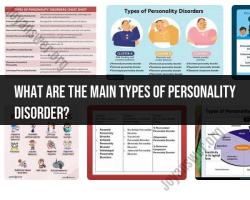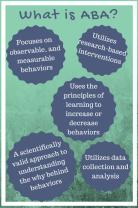What are the most common personality traits?
Personality traits are enduring patterns of thoughts, feelings, and behaviors that characterize an individual's way of interacting with the world. There are many different personality traits, and researchers have identified various systems for categorizing them. The most common personality traits are often described within the framework of the Five Factor Model (also known as the Big Five), which includes the following traits:
Openness: This trait refers to an individual's receptiveness to new experiences, creativity, and intellectual curiosity. People high in openness are often imaginative, open to new ideas, and eager to explore new concepts.
Conscientiousness: Conscientious individuals are characterized by their organization, discipline, and reliability. They tend to be responsible, detail-oriented, and goal-driven.
Extraversion: Extraversion relates to an individual's sociability, assertiveness, and energy level. People high in extraversion are outgoing, talkative, and seek social interaction.
Agreeableness: Agreeableness reflects a person's degree of kindness, cooperativeness, and compassion. Those high in agreeableness tend to be empathetic, considerate, and focused on maintaining harmonious relationships.
Neuroticism (Emotional Stability): Neuroticism measures emotional stability versus emotional instability. High levels of neuroticism are associated with anxiety, moodiness, and emotional reactivity, while low levels are associated with emotional stability and resilience.
In addition to the Big Five traits, there are many other personality traits and systems used to describe human behavior, including:
Introversion: While introversion is often seen as the opposite of extraversion, it's important to note that introversion is a personality trait in its own right. Introverts tend to be more reserved and gain energy from solitary activities.
Extroversion: As mentioned above, extroverts are outgoing and gain energy from social interactions.
Empathy: Empathy is the ability to understand and share the feelings of others. It's an important trait for building strong interpersonal relationships.
Assertiveness: Assertive individuals are able to express their needs and opinions confidently while respecting the needs and opinions of others.
Self-Confidence: Self-confidence is the belief in one's own abilities and judgments. It plays a crucial role in various aspects of life, from decision-making to goal achievement.
Adventurousness: Adventurous individuals are inclined to take risks and seek out new and exciting experiences.
Humility: Humility involves an accurate self-assessment and an openness to learning from others. It can foster cooperation and effective teamwork.
Resilience: Resilience is the ability to bounce back from adversity, setbacks, and stress. It contributes to emotional well-being and mental health.
Sociability: Sociable people are friendly, enjoy social interactions, and are often involved in group activities.
Perseverance: Perseverance is the determination and persistence to overcome challenges and achieve long-term goals.
It's important to note that no two individuals have the same combination of personality traits, and personality can be influenced by genetics, upbringing, life experiences, and cultural factors. Moreover, personality traits can change over time as individuals mature and adapt to new circumstances. Understanding one's own personality and the personalities of others can be valuable for personal growth, effective communication, and building successful relationships.
Exploring the Most Common Personality Traits
Personality traits are enduring patterns of thinking, feeling, and behaving. They are relatively stable over time and across situations, and they influence how we interact with the world around us.
Some of the most common personality traits include:
- Openness to experience: This trait reflects a person's curiosity and willingness to try new things. People who are high in openness to experience tend to be creative, imaginative, and adventurous.
- Conscientiousness: This trait reflects a person's orderliness, responsibility, and self-discipline. People who are high in conscientiousness tend to be organized, efficient, and reliable.
- Extraversion: This trait reflects a person's sociability and outgoingness. People who are high in extraversion tend to be talkative, energetic, and assertive.
- Agreeableness: This trait reflects a person's cooperativeness and concern for others. People who are high in agreeableness tend to be trusting, kind, and forgiving.
- Neuroticism: This trait reflects a person's emotional vulnerability and tendency to experience negative emotions. People who are high in neuroticism tend to be anxious, worried, and moody.
What Are Personality Traits, and How Are They Assessed?
Personality traits are assessed using a variety of methods, including:
- Self-report questionnaires: These questionnaires ask people to rate themselves on a variety of personality traits.
- Behavioral assessments: These assessments observe people's behavior in different situations.
- Interviews: Interviews with the person and others who know them can also be used to assess personality traits.
The Big Five Personality Traits and Their Significance
The Big Five personality traits are the most widely studied and accepted model of personality. The Big Five traits are openness to experience, conscientiousness, extraversion, agreeableness, and neuroticism.
The Big Five personality traits are significant because they have been shown to be related to a wide range of outcomes, including academic success, job performance, mental health, and physical health.
For example, people who are high in conscientiousness tend to perform better in school and at work. People who are high in extraversion tend to have more friends and be more satisfied with their social lives. People who are high in agreeableness tend to have better relationships and be less likely to engage in criminal behavior. People who are high in neuroticism tend to be more prone to anxiety and depression.
Personality Traits in Psychology: Nature vs. Nurture
The nature-nurture debate is a long-standing one in psychology. It is the debate about whether personality traits are determined by nature (genetics) or nurture (environment).
Most psychologists believe that personality traits are influenced by both nature and nurture. For example, a person's genetic predisposition to openness to experience may be triggered by certain environmental experiences, such as exposure to new cultures or ideas.
How Personality Traits Impact Relationships and Careers
Personality traits can have a significant impact on relationships and careers. For example, people who are high in agreeableness tend to have more satisfying relationships. People who are high in conscientiousness tend to be more successful in their careers.
However, it is important to note that no one personality trait is ideal for all relationships and careers. For example, people who are high in extraversion may be well-suited for careers in sales or public relations, but they may not be well-suited for careers that require a lot of alone time.
It is also important to remember that personality traits are not fixed. People can change their personality traits over time, especially if they are motivated to do so.
Overall, personality traits are important because they influence how we interact with the world around us. They can have a significant impact on our relationships, careers, and overall well-being.













